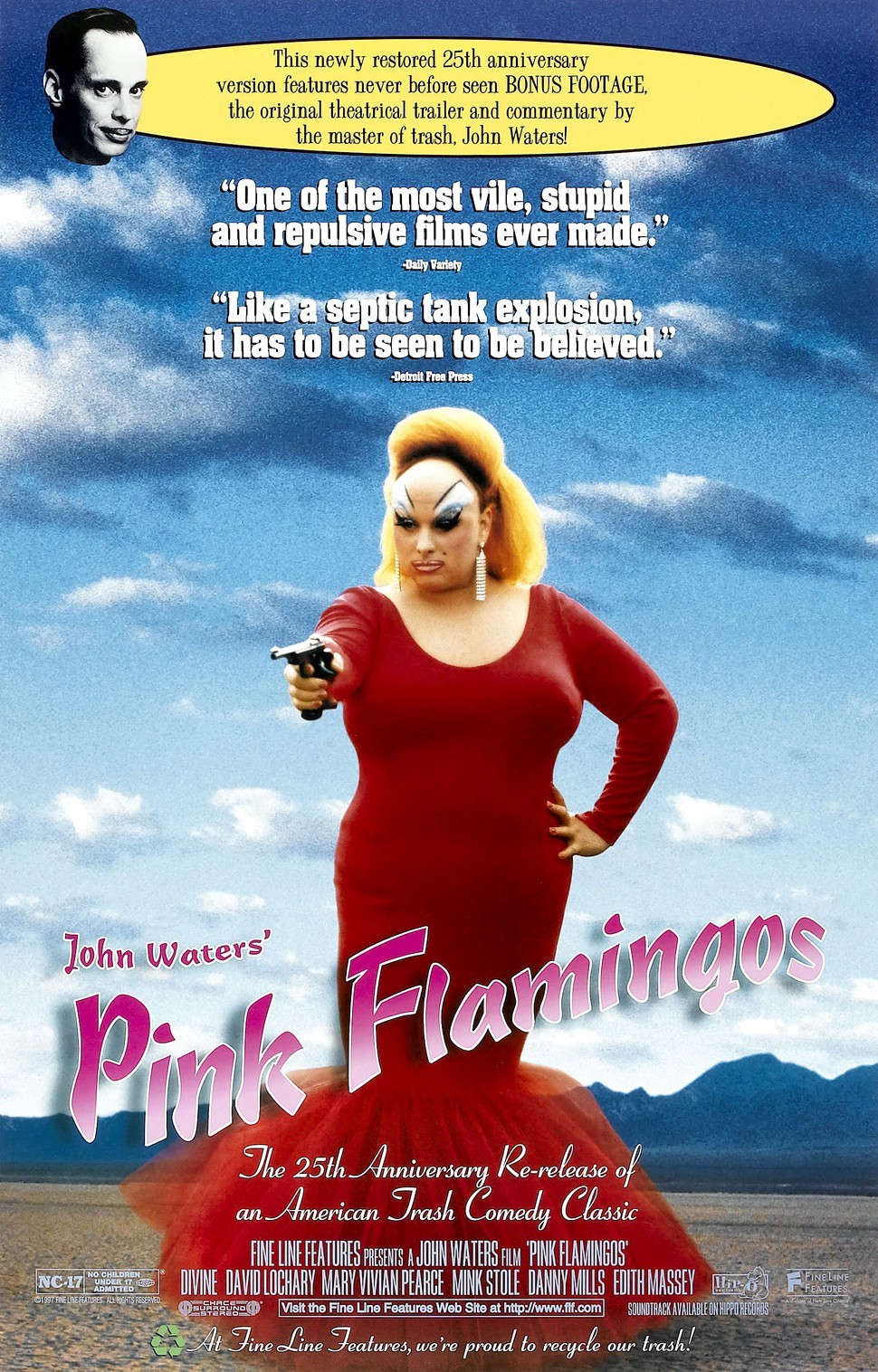Over the weekend, a man was arrested for stabbing a gas station worker over “bad chicken.” Now we’re not ones to condone violence —no stabbing! — but people around these parts have certain expectations that their chicken is going to be good.
This issue is all about good chicken. Plenty of words have been written about Gus’s and Uncle Lou’s, so we decided to explore Memphis’ other chicken avenues. We guarantee that you’ll be hungry after reading this.
The Smoked Chicken Debris PoBoy
@ The Dirty Crow Inn
If heaven ain’t a lot like The Dirty Crow Inn, I don’t want to go. (I checked, and it’s fine to rip off Bocephus when you’re talking chicken. “He wouldn’t mind,” is what the rule book says.)
I’d heard tell of a chicken Philly sandwich at the Inn. It’s a special sometimes, the bar man told me, but not part of the regular menu. At that low moment, a ray of hope cut those rainy clouds — the word “debris.”
The Inn keepers have called it the “Chicken Debris PoBoy” online, but the Dirty Crow menu said, “smoked chicken debris” sandwich. To me, debris is debris any way you cut it (or don’t, I guess). And I’ve seen it swimming in the serving pan at Mother’s, the famed New Orleans restaurant that invented debris (the term anyway).
My sandwich at the Dirty Crow was every bit a po’boy, beautifully smoked chicken bathed in an earthy brown gravy riding two light (and lightly toasted) pieces of French bread from Gambino’s, that fine and famed New Orleans bakery.
Sometimes “smoked” menu items, even in Memphis, don’t taste that way. The Crow’s chicken debris sandwich does not leave you guessing. Its smoke flavor is present but delicate, the way it ought to be. It blends seamlessly with that gravy and a nice dose of melted cheese that pulls away in a pizza-commercial string as you pull the sandwich from your mouth.
The place is heaven for dive-bar aficionados (like me). The food makes it a before-you-die destination for all Memphians. — Toby Sells
Dirty Crow Inn, 855 Kentucky, 207-5111, facebook.com/thedirtycrowinn
Fried Chicken @ Cash Saver
Sometimes, you just gotta have fried chicken. Last week, I was so desperate I went to the KFC drive-thru and ordered a box. “Thlbetwtyminawtfcxx” came back over the microphone.
“What?”
“Thlbetwtyminawtfcxx”
“What?”
After several attempts, the fellow managed to get the message to me: “There will be a 20-minute wait for chicken.” Right. At a chicken restaurant. So …
I’ve been hearing about Cash Saver’s fried chicken for more than a year now. Midtowners who I know and trust have said to me, “That fried chicken is the real deal. And cheap!” Some said it was the best in town. I don’t know about that, but I’m here to tell you, they were right about it being very good. And very cheap.
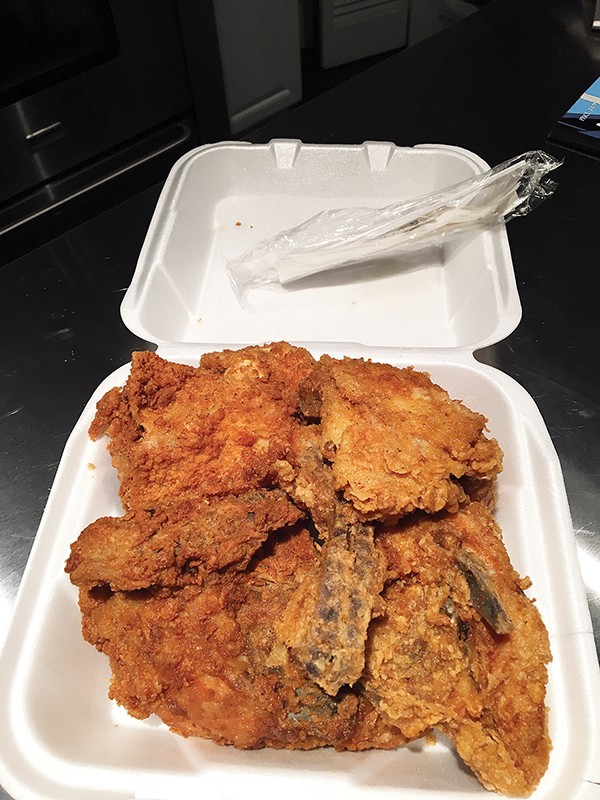
Fried Chicken at Cash Saver
I ordered two breasts and two thighs. Total cost? $5.19.
The pieces were very large, crispy on the outside and perfectly moist on the inside. The flavor of the skin was savory, lightly seasoned but with a little bite. In short, great fried chicken — the real deal. Highly recommended. I’ll be back for more. — Bruce VanWyngarden
Cash Saver, 1620 Madison, 272-0171, memphiscashsaver.com
Romaine Salad with Chicken Skins @ Hog & Hominy
Anytime I see someone slip off and discard the skin from an otherwise perfect piece of fried or baked chicken (but especially fried), I inwardly pray for their poor soul and wonder who it was that set you down a path of self-deprivation.
It’s not only that they are missing out on some heart-healthy unsaturated fats, it’s that they might still fall victim to this woefully false myth that this is something you have to do to make your chicken healthy enough to consume (spoiler, it’s not).
Well, someone at Hog & Hominy decided, “Screw that, we’re devoting a dish solely to chicken skins.” And just to round it out, lest the consumer grew up under the anti-skin mythology, that someone decided to build their chicken dermis homage on a bed of Romaine lettuce.
The result is an unexpectedly cohesive salad, misleadingly and simply titled, “Romaine.” The chicken skins used are more akin to a pork rind rather than the double-breaded crunchiness of most fried chicken pieces. These puffy morsels are strewn atop a decent portion of lettuce, which is in turn covered in snowy Parmesan and drizzled with pecorino vinaigrette.
 Justin Fox Burks
Justin Fox Burks
Romaine Salad with Chicken Skins at Hog & Hominy
The skins are lightly seasoned so the vinaigrette can come in and work its magic by introducing a low level of spice and tang, two flavors that pair surprisingly well with the fried fat essence of the skins. The Romaine lettuce does what Romaine was put on this earth to do, namely, trick us into thinking we’re consuming something mega-healthy when we are not. And, of course, it’s the perfect semi-crunchy vehicle that supports the crispiness of the skins.
Be warned, though, this is not the type of salad loaded down with auxiliary vegetables and croutons. It’s not going to fill you up. But it will deliver piquancy worthy of what I have determined to be the greatest part of the chicken.
— Micaela Watts
Hog & Hominy, 707 W. Brookhaven,
207-7396, hogandhominy.com
Chicken Tamales from Tacqueria La Guadalupana food truck
Tamales were among the earliest food imports from south of the border to make it onto Norde Americano menus, and they remain a staple, whether in supermarket cans or on restaurant tables. Something of a debate rages as to whether the meat base in those wraparound masa cylinders should be beef or pork, but there is a third possibility — chicken — and a good place to sample it is from the Tacqueria La Guadalupana food truck that sets up daily on the north side of the shopping-center lot where Cordova Road intersects with Germantown Parkway — in an area that is more multi-ethnic than you might imagine. (The internationally focused Cordova Farmers Market is the big-box anchor on the lot.)
The La Guadalupana truck offers numerous cooked-while-you-wait specialties, several involving chicken. Order tamales, and what you get, for a mere $7.99, is three YUGE tamales, each with a generous and succulently breaded tortilla coating, within which is packed none of that minced mystery-meat filling you get at so many places, but steamed and tender morsels of freshly carved, fresh-off-the-bone-looking chicken meat. Two sauces are available as condiments, the green one appears to mix guacamole with chili; the red one (maybe laced with habanero) is scalding hot.
— Jackson Baker
Taqueria La Guadalupana at the corner of Cordova Road and Germantown Parkway
Wood Roasted Half Chicken @
The Kitchen Bistro
Served in a round ceramic casserole the color of red clay, the Kitchen’s wood-roasted chicken earns it $29 price tag with looks, smarts, and personality. First, cornbread panzanella sets the dish with a seasonal cacophony of tomatoes, onions, and olives. Next comes the chicken, brined, flattened, and wood-roasted to a deep and rustic char. And what swirls on top with magical brushstrokes of taste and color? The dressing, a pesto of sorts made with garlic, olive oil, lemon, and anchovies. “You don’t want to eat the chicken and think the chicken tastes like fish,” explains head Chef Dennis Phelps. “You want to eat the chicken and think the chicken tastes delicious.” — Pamela Denney
 Justin Fox Burks
Justin Fox Burks
Wood Roasted Half Chicken at the Kitchen Bistro
The Kitchen Bistro, 415 Great View Drive East, 729-9009, thekitchen.com
General Tso’s Chicken @ Mulan
It’s a conundrum every office has had to face as they order takeout lunch: What’s the deal with General Tso’s Chicken? Who was the eponymous military man? What’s his connection with poultry? How do you even pronounce it?
If these questions have ever prompted debate at your workplace, take heart. The answers are out there, in the form of Ian Cheney and Jennifer Lee’s 2014 documentary The Search for General Tso. It’s a fascinating look into the ways immigrant communities adapt to American life that also tells you everything you need to know about the sweet and spicy Hunan-style dish which, it turns out, is virtually unknown in China.
The first two things I noticed about the General Tso’s Chicken at Mulan is that the garnish contained a glowing LED and a dearth of broccoli on the plate. Many Chinese restaurants include plentiful broccoli with the stir-fried dark meat, and the florets come in handy for sopping up the sauce that gives the dish its deep red color. But once I bit into the succulent chunks of chicken, I realized the vegetable would have been a distraction from the main show. Each morsel was just a little crispy on the outside, tender on the inside. It was outstanding. I got the standard spice level for scientific purposes, so the sweetness and heat were finely balanced. But if you like it spicy, they’ll be more than happy to oblige.
 Chris McCoy
Chris McCoy
Mulan General Tso’s Chicken
For the record, the Chinese character transliterated as “Tso” or “Zho” means “left.” It’s a syllable that English does not contain, but it is roughly pronounced as “jowh.” However, to avoid confusion with your server, you should probably just go with “so.” — Chris McCoy
Mulan, 2149 Young, 347-3965 mulanmidtown.net
Chicken and waffles @
The HM Dessert Lounge
I’m aware of no other restaurant in Memphis where one can dine surrounded by paintings of the late, great Prince hung on purple walls. I discovered the promised land, and it’s named HM Dessert Lounge. The restaurant’s focus is in its name, with one exception: chicken and waffles.
The chicken is dipped in double honey hot sauce, Jamaican jerk sauce, or spicy peach glaze. It’s then paired with a regular, cornbread, honey butter biscuit, blueberry, sweet potato, or a maple bacon waffle. Options, indeed.
 Justin Fox Burks
Justin Fox Burks
Chicken and waffles at The HM Dessert Lounge
I settled on four chicken breasts bathed in double hot honey sauce and coupled with a maple bacon encrusted waffle — $12 well spent. Sticky as it is, the hot honey sauce slides from the chicken and blends with the maple syrup, creating a sweet and spicy combination that brings magic to a dish which otherwise would have been too obvious. The chicken isn’t flaky but smooth, and each piece shines beneath the sauce. Slice the waffle, cut the chicken, and fork ’em together. Sauce and syrup united, the waffle coats the chicken, and bacon bits provide a necessary crunch.— Joshua Cannon
The HM Dessert Lounge,
1586 Madison, 290-2099,
facebook.com/fashionablysweetlounge
Smoke Chicken @ Picosos
There are fewer words in the English language sadder than, “Sorry, not today.” Especially if those words are spoken with genuine disappointment in a Mexican accent at Picosos, a terrific little south-of-the-border diner on Summer Avenue. The restaurant’s “Smoke Chicken” is an old-Memphis-meets-old-Mexico delicacy that sells fast, is only available on the weekends, and so succulent and good it’s worth heading out early to get your order in before the Saturday lunch crowd arrives. Served with rice and refried beans and topped with a handful of french fries, the meal is exactly what it sounds like — a quarter, half, or whole chicken covered with a heady-not-hot spice rub that’s a little on the salty side and slow-smoked to barbecue-lover’s perfection. It’s tempting to just wolf the whole thing down, but advisable to savor every spicy, smoky, chickeny bite. — Chris Davis

Smoke Chicken at Picosos
Picosos, 3937 Summer, 323-7003
The Family Chicken Dinner @ SuperLo
It was a snobby Midtowner’s dilemma.
Our Target basket was full. The kids were getting pissy. We were all hungry, but the grown-ups didn’t want to make lunch.
“But there’s nothing to eat in East Memphis,” we whined without saying a word.
Wheeling through the parking lot, my wife caught a scent on the wind. “Oh my god, somebody’s fried chicken smells GOOD!” she said. We both whirled, like castaways searching the skies for a rescue plane.
The only thing that made sense was the deli counter of the Target-adjacent SuperLo. We’d been there infrequently, but I thought I remembered a big deli case. I remembered correctly.
The star of the SuperLo show was a fried chicken dinner, perfect for a Sunday lunch. Plenty of dark-brown-fried breasts and thighs lined a warming tray. But we wanted the eight-piece meal and the case offerings would not do for our wonderful deli helper.
“Nuh-uh. Give me two minutes, baby,” the woman said to my wife. “I’m going to make you up some fresh.”
Two minutes later, she filled a white, cardboard service box with two breasts, two thighs, two drummies, and two wings, like a Memphis-style Noah’s Ark. That Ark came with big-ole sides of green beans, mashed potatoes, and four King’s Hawaiian rolls. (They even added two cookies for my son. No charge.)
The chicken was crunchy-crispy on the outside, fork-tender and moist on the inside, warmly spiced, but not too spicy. It was that eye-rolling, soul-feeding, conversation-stopping, back-home-style kind of good. And all of it for about $14.
Who says there’s nothing to eat in East Memphis? — Toby Sells
SuperLo, 4744 Spottswood, 683-6861, superlofoods.com
Fried Buffalo Chicken Slider (add peanut butter) @ The Slider Inn
The first thing you need to know about Slider Inn’s Buffalo Chicken Slider is that you should order it fried. They’ll serve it grilled, but that’s your loss. As is, the sandwich comes with a palm-sized chicken breast drenched in buffalo wing sauce and topped with American cheese, lettuce, tomato, and ranch.
Here’s the second thing you need to know — hidden off the menu, secret but paramount. Ask for peanut butter, and the sandwich will come with a layer of crunchy goodness spread across the bottom bun. The ranch, buffalo sauce, and peanut butter assemble in your mouth upon first bite. It’s manna on the tongue.
For all its glory, there’s no way around it, you’ll smack your way through this mess of a meal. The peanut butter serves as a medium between the milky ranch and hot and tangy buffalo sauce, softening the spice to let the flavors shine.
— Joshua Cannon
The Slider Inn, 2117 Peabody, 725-1155, facebook.com/sliderinn
…
Chefs Speak Out
It’s not easy to eat your way through Memphis, one piece of chicken at a time, especially if you’re trying to go veg (I’m at about a week this go around). That’s why I asked some of my favorite chefs in town to serve as my chicken-chowing proxy and name the chicken dishes they go for when they get a break from the grind.
Chef Kelly English, who can do things with chicken that grant him James Beard Semifinalist awards and spots on television and in Bon Appetit, can’t say enough nice things about the magic that happens in the kitchens of Memphis visionary chef Karen Carrier. “I just had my favorite chicken dish ever at the Beauty Shop — Karen’s smoked chicken dish,” English says. He’s referring to the Hickory Grilled Chicken, which comes in a Thai green curry broth with candied garlic chips, pickled red onion, watermelon, Thai basil, mint, cilantro, and corn fritter. “It was fan-frickin’-tastic. It is my favorite chicken dish I’ve ever had at a restaurant.” He may or may not have posted on Facebook that “Karen Carrier is the coolest kid in school.”
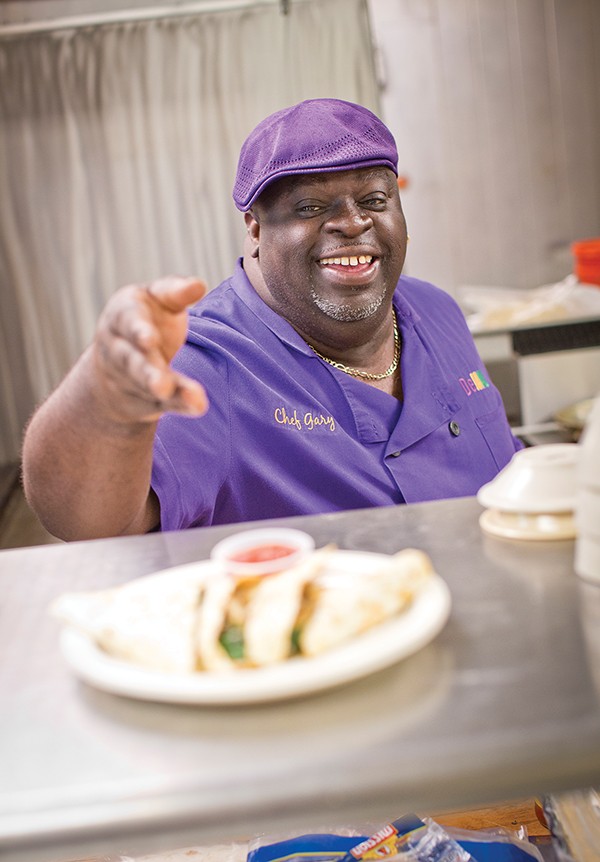 Justin Fox Burks
Justin Fox Burks
Gary Williams
Chef Gary Williams, of DeJaVu legendari-ness, has done his share of traveling and sharing his New Orleans recipes with A-listers, and points to several restaurants who serve up chicken goodness in Memphis, including Cozy Corner’s Cornish Hen, Uncle Lou’s honey chicken, and HM Dessert Lounge’s ability to take chicken and waffles to the nth degree. “I’m a chicken connoisseur,” he says. But there’s one spot in particular that has his heart. “There’s this little spot called Pho Binh on Madison, and they do this chicken dish that has pineapple and is a little spicy, served over rice. That is one of my favorite places. It’s a gem,” Williams says. — Lesley Young
…
Being Pirtle
So what’s it like being a Pirtle? It’s good, say Cordell and Tawanda Pirtle. And as they go over the past, present, and future of Pirtle’s Fried Chicken, a couple approaches and asks for a picture. As they move on, the woman exclaims in a whisper, “Oh my goodness!” “Happens all the time,” Tawanda says.
Cordell is the only child of Jack Pirtle, the founder, with his wife Orva, and the force behind Jack Pirtle’s. Cordell describes his father as an outgoing man, a doer and a creator. Jack opened his first restaurant near the Firestone plant in the 1940s and then hooked up with Colonel Harland Sanders of Kentucky Fried Chicken. Jack sold Kentucky Fried Chicken using Sanders’ special seasoning, alongside Pirtle’s burgers and hotdogs.
Cordell says the first contract with Sanders was a single page, double-spaced. Later, when KFC sought a more formalized agreement, Jack decided to move on, eventually phasing out the KFC part of the business.
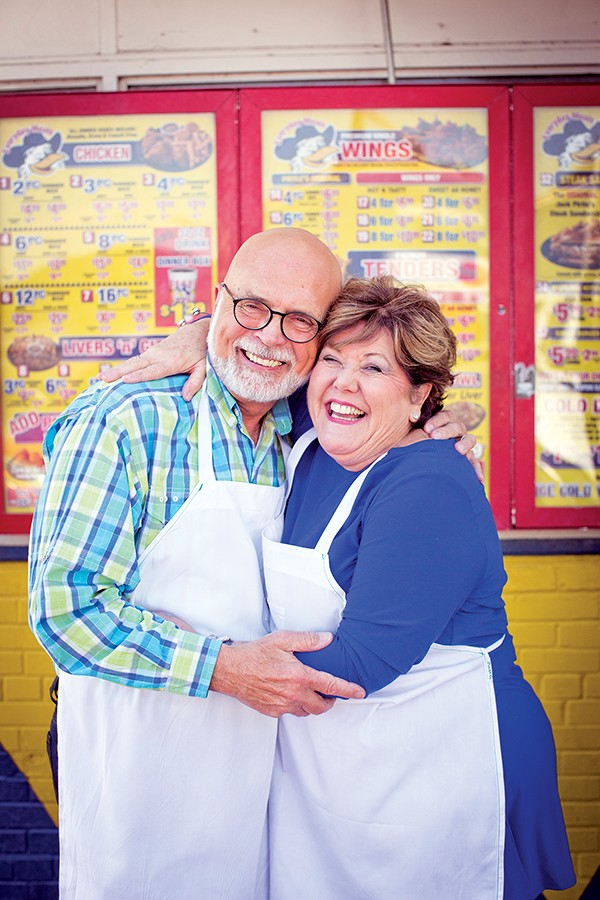 Justin Fox Burks
Justin Fox Burks
Cordell and Tawanda Pirtle
“He couldn’t use the same cooking equipment because it was part of the process for KFC. He built his own cooking equipment, pressurized cookers, and then my mother had a degree from the University of Tennessee in home economics, so she and he together tried different formulas. They went through a lot of different formulas and came up with this and varied it some for the first year as they saw how it did. That started in 1964,” says Cordell.
Pirtle’s seasoning was originally mixed in a device Jack built that looked like a concrete mixer. The recipe is top secret. “That’s what Pirtle’s is known for, that taste that we have,” Tawanda says. “It’s the same seasoning that the gravy is made out of. It’s a huge deal for us. And the spices have to be mixed up for a period of time for all of them to combine correctly.”
Cordell, who started working at Pirtle’s at 13, took over the business in 1979. “It was doing well. We had six stores at the time. When I took it over, I had been a store manager for 17 years. So I had pretty much been there/done that on almost everything,” Cordell says. “When I took it over it was almost more of an organizational change.”
“Your daddy thought you were going to go broke,” Tawanda interjects.
“Precisely,” Cordell agrees, noting his father’s concern over the purchase of expensive cash registers and a centralized warehouse.
Pirtle’s didn’t go broke. There are now eight stores. They get approached a lot about franchising — about three times a week, says Tawanda.
They’ve resisted franchising, as they want to work out the best deal for them and the franchisee. While none of their kids (he’s got three, she’s got two) have shown any interest in the business, they’re hoping that one of their grandkids or great-grandchildren will sign on and take on franchising.
As for the future, they’re considering more stores. They’ve thought about opening a Jack Pirtle’s Cafe.
Cordell is 72 and retired. Sort of.
“I tell everybody they’ve got the tired part right,” he says, laughing. “But, no, as far as being totally retired, when you’re involved in a business your entire life and you’ve grown up in it and you know all the people, you really can’t just simply say, I’m done. It’s always there. It’s always on your mind.” — Susan Ellis
…
Chicken
Playlist
Oblivians — “Call the Police”
We’ll kick this thing off with an instant classic from the Oblivians. This track was on the band’s last album Desperation. Listen close for the chicken reference.
The Meters — “Chicken Strut”
One of the best Meters songs happens to have some squawking in it, but I would include this in any playlist because the Meters rule, plain and simple.
Those Darlins — “The Whole Damn Thing”
Before Those Darlins went all Fleetwood Mac on us, this was arguably their most popular song. This simple tune about eating a whole chicken was catchy enough to get the band some notoriety and is worth revisiting while raiding the fridge.
Hasil Adkins —
“Chicken Walk”
If you haven’t heard Hasil Adkins before, do yourself a HUGE favor and track down the album Out to Hunch.
Charles Mingus —
“Eat That Chicken”
A classic from jazz legend Charles Mingus.
Project Pat — “Chicken Head”
Hell yeah I included this song in this playlist. Project Pat for life.
Billy Swan — “I Can Help”
By now you’re going to need some help getting out of that chicken coma. Let this classic from Billy Swan get you moving again.
Rufus Thomas —
“Do the Funky Chicken”
A classic from Rufus Thomas. The live footage on YouTube of his performing this song is amazing and should be played on a big screen at every chicken restaurant from now on.
Patrick Hernandez —
“Born to Be Alive”
We’ll close this thing out with a toast to any vegetarians or vegans who picked up the Chicken Issue. If you believe that all animals are born to be alive, dance around with your fake chicken nuggets to this obscure ’70s classic.
— Chris Shaw



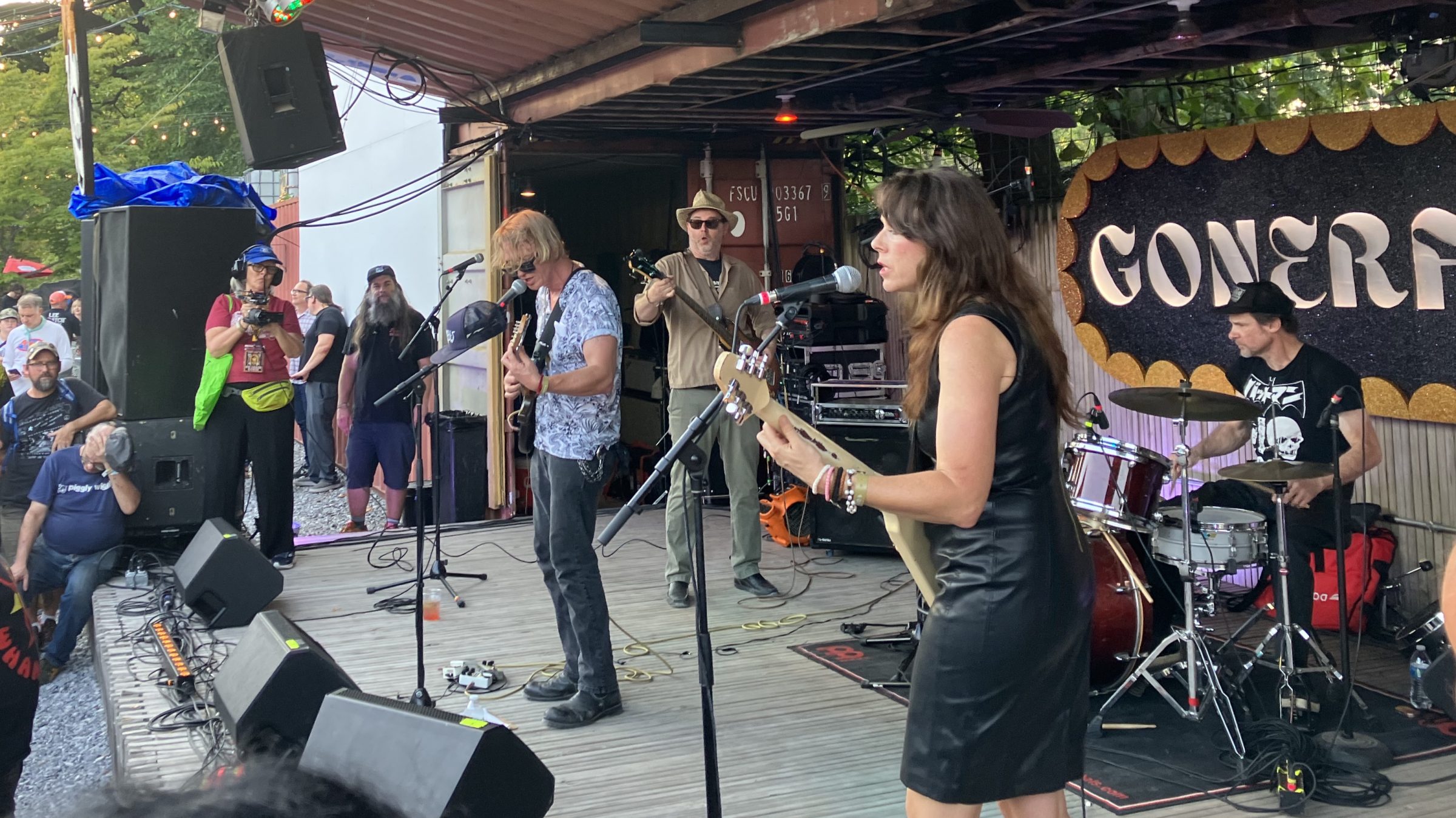
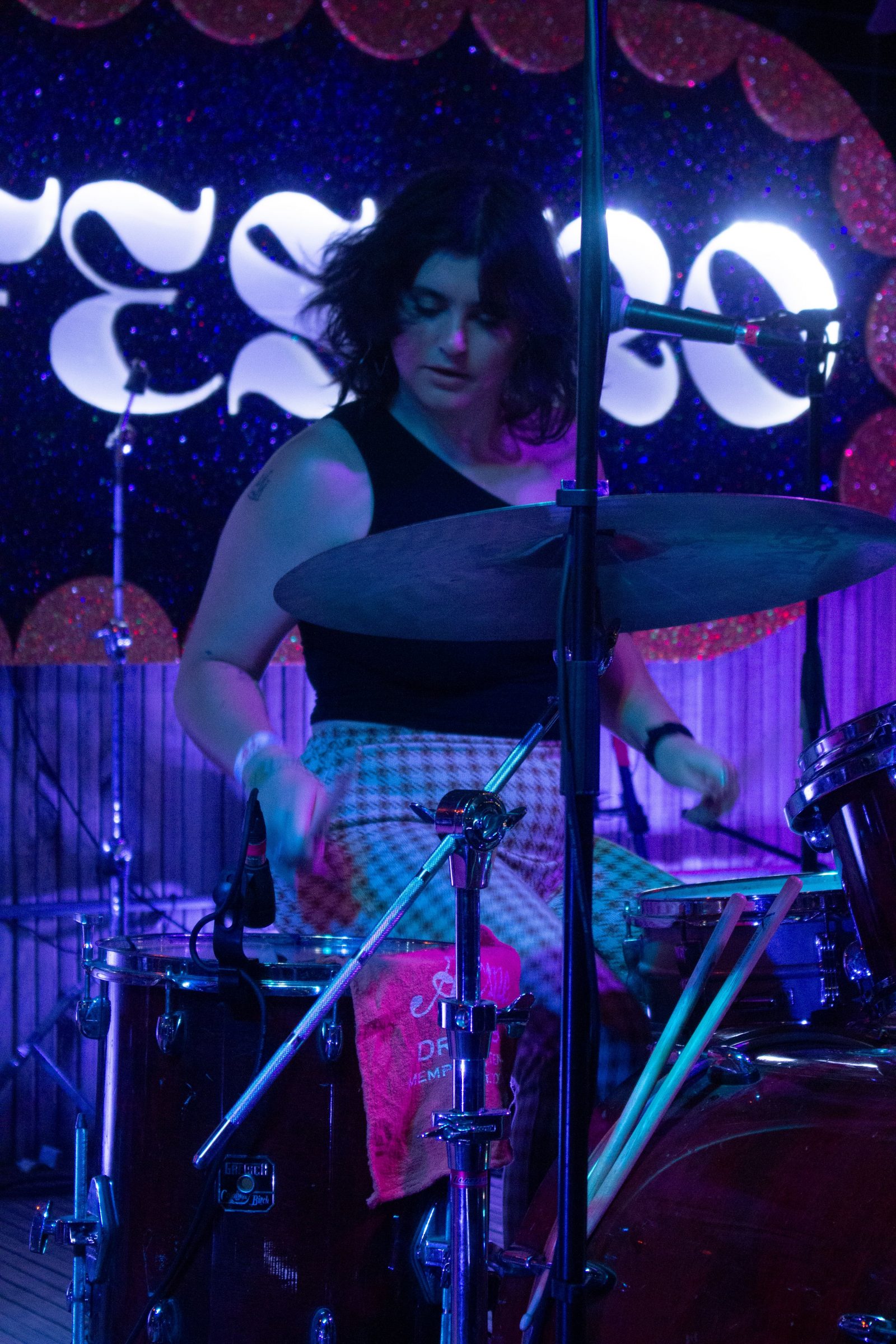


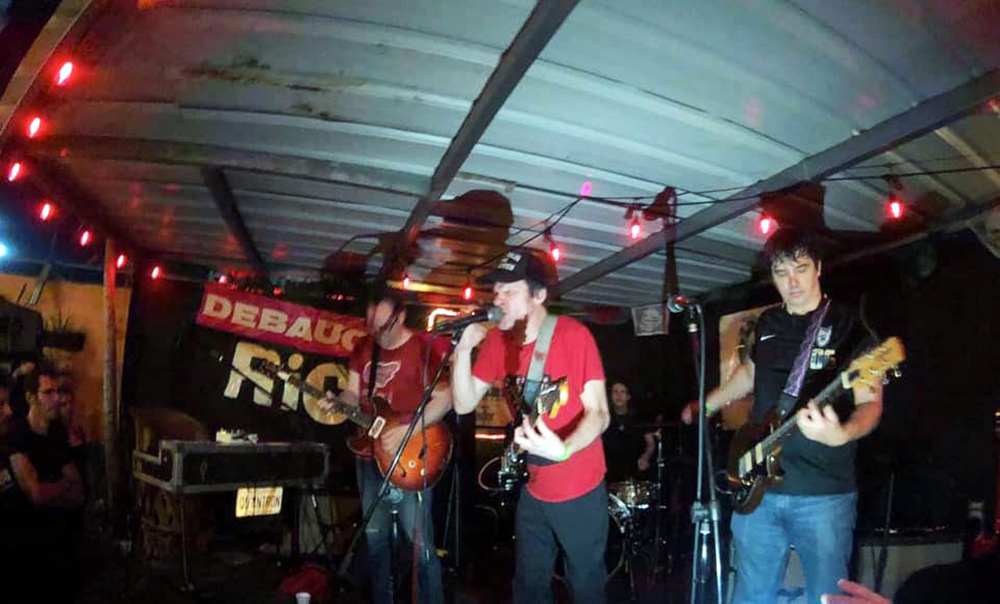
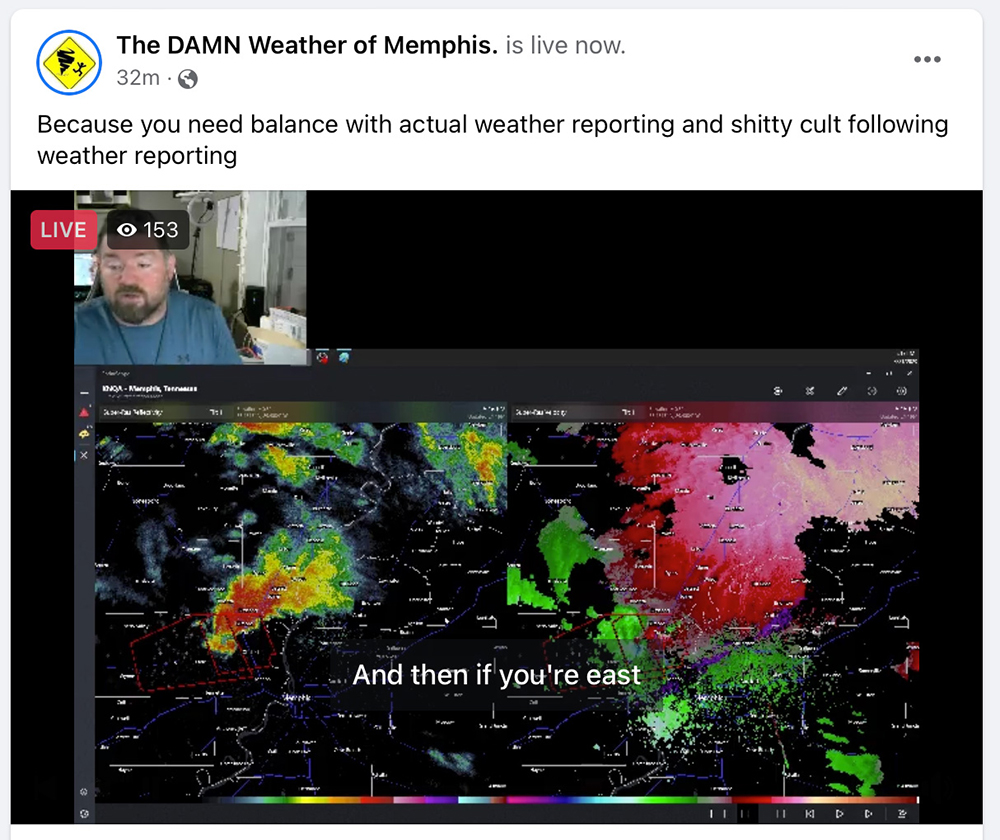
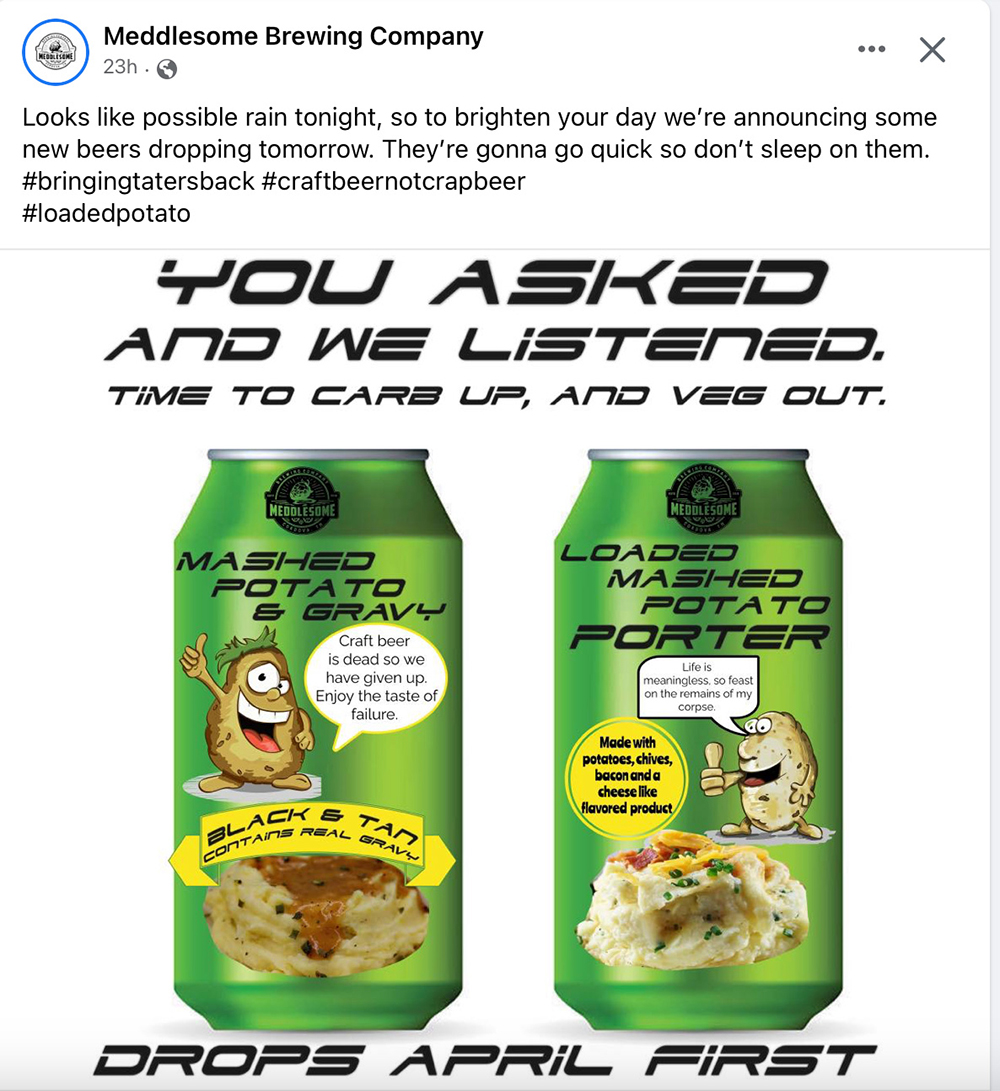
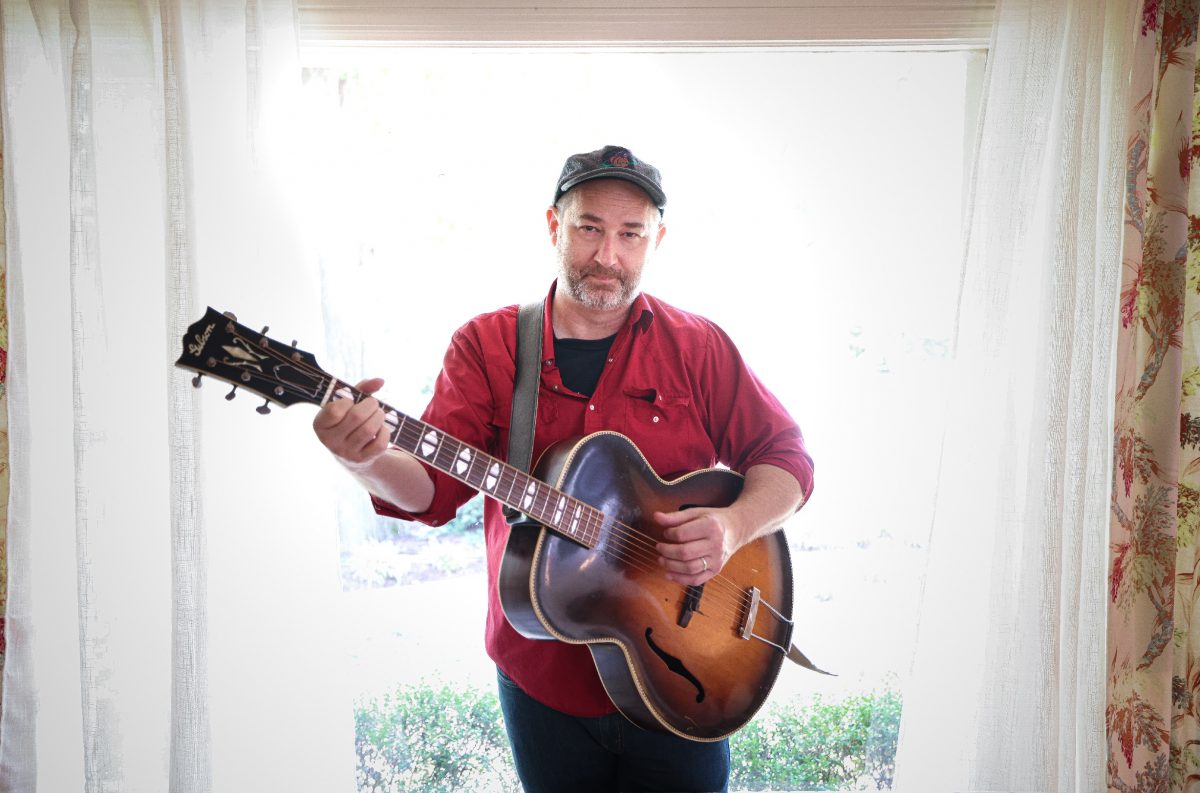

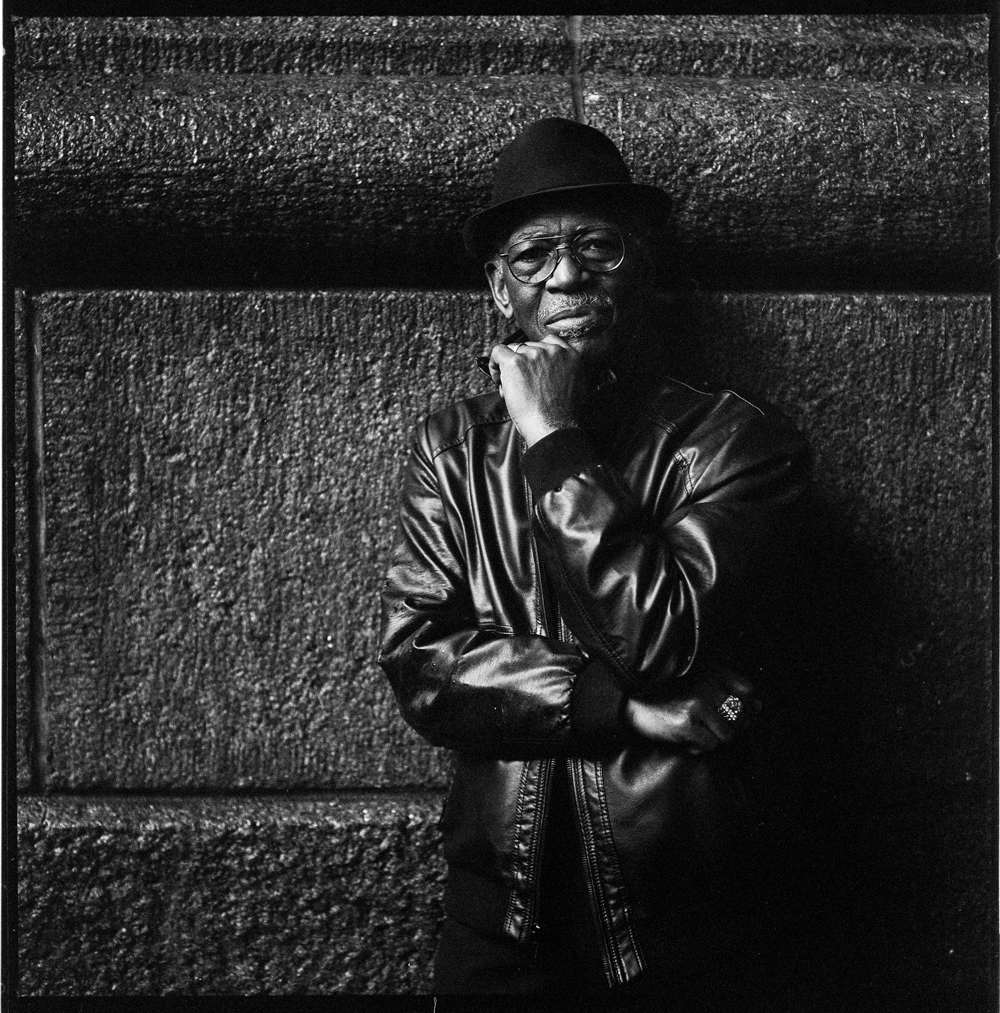
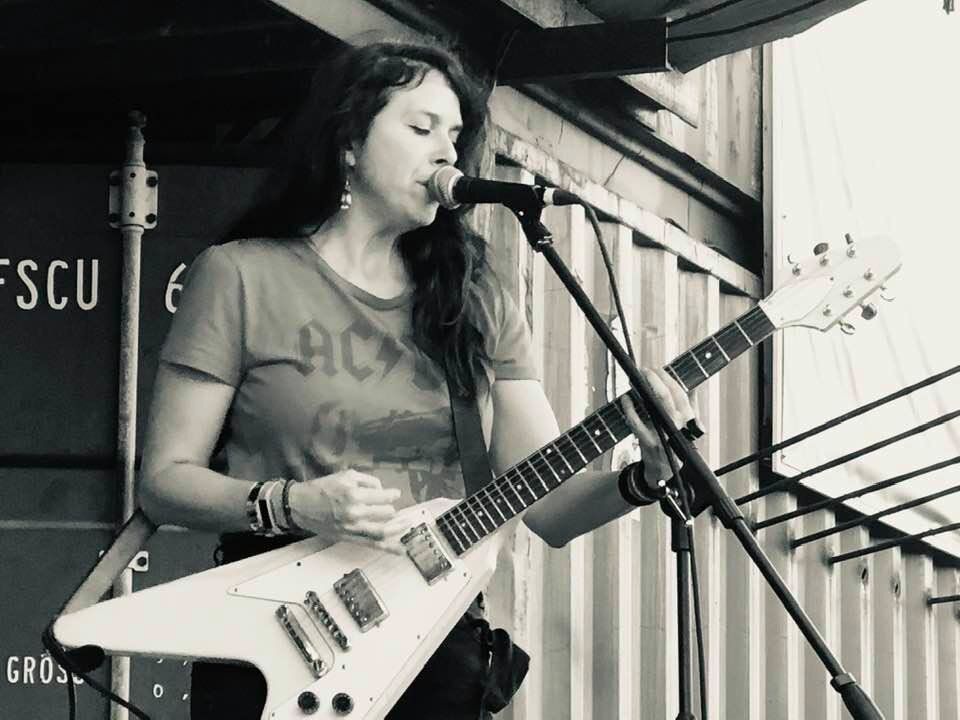

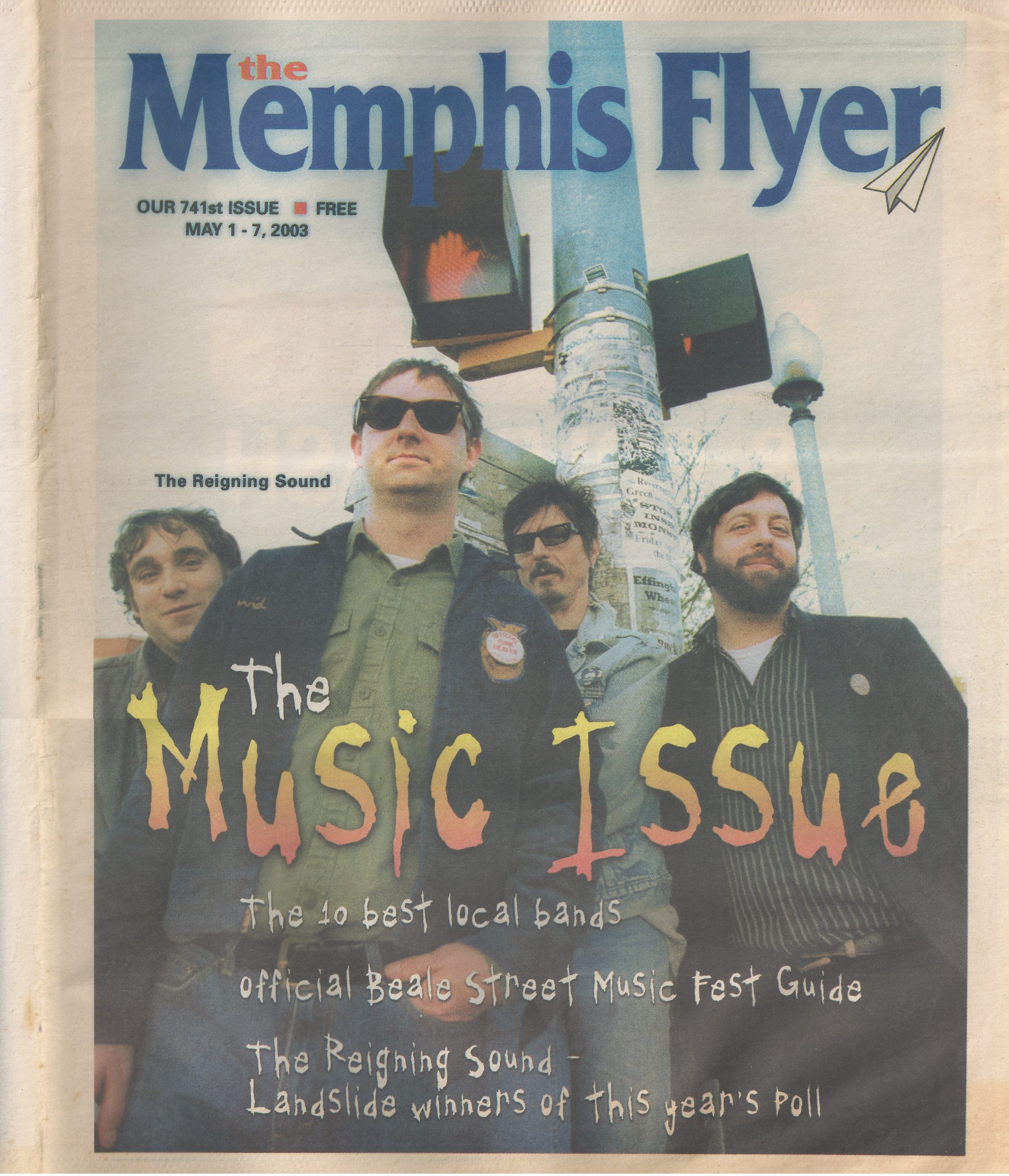
 MIchael Donahue
MIchael Donahue 

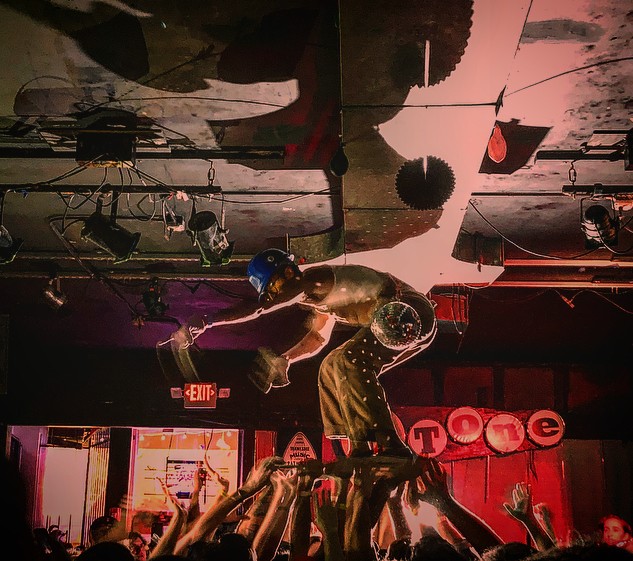 Jesse Davis
Jesse Davis  Jesse Davis
Jesse Davis  Jesse Davis
Jesse Davis 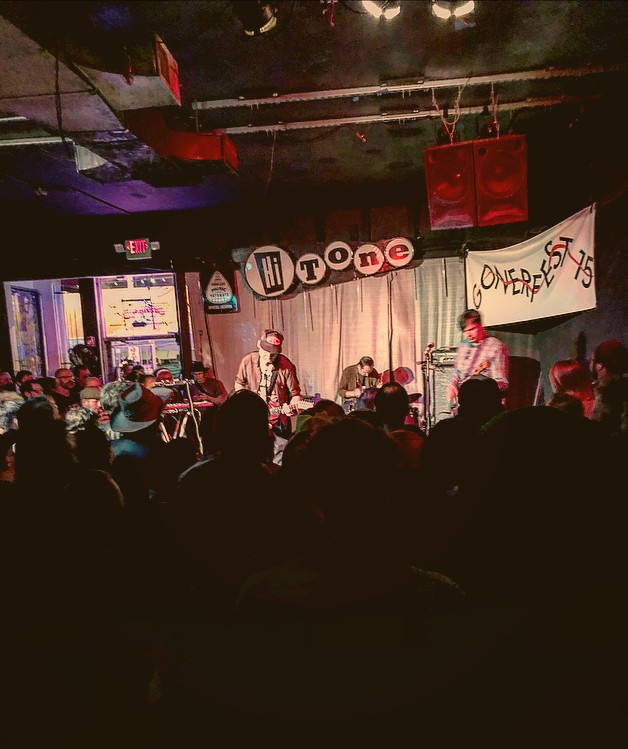 Jesse Davis
Jesse Davis 
 Justin Fox Burks
Justin Fox Burks  Justin Fox Burks
Justin Fox Burks  Chris McCoy
Chris McCoy  Justin Fox Burks
Justin Fox Burks 
 Justin Fox Burks
Justin Fox Burks  Justin Fox Burks
Justin Fox Burks 

